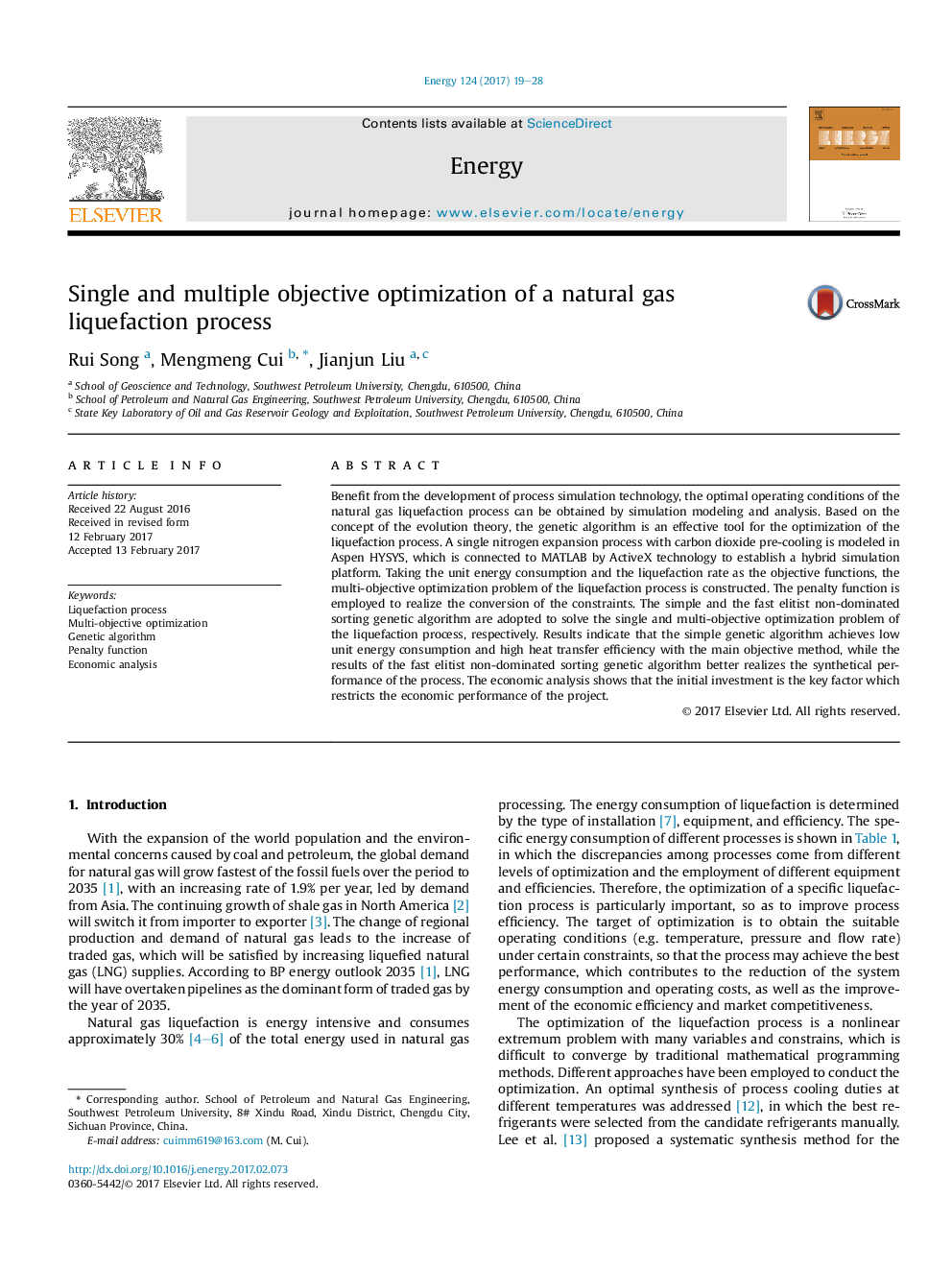| Article ID | Journal | Published Year | Pages | File Type |
|---|---|---|---|---|
| 5475940 | Energy | 2017 | 10 Pages |
Abstract
Benefit from the development of process simulation technology, the optimal operating conditions of the natural gas liquefaction process can be obtained by simulation modeling and analysis. Based on the concept of the evolution theory, the genetic algorithm is an effective tool for the optimization of the liquefaction process. A single nitrogen expansion process with carbon dioxide pre-cooling is modeled in Aspen HYSYS, which is connected to MATLAB by ActiveX technology to establish a hybrid simulation platform. Taking the unit energy consumption and the liquefaction rate as the objective functions, the multi-objective optimization problem of the liquefaction process is constructed. The penalty function is employed to realize the conversion of the constraints. The simple and the fast elitist non-dominated sorting genetic algorithm are adopted to solve the single and multi-objective optimization problem of the liquefaction process, respectively. Results indicate that the simple genetic algorithm achieves low unit energy consumption and high heat transfer efficiency with the main objective method, while the results of the fast elitist non-dominated sorting genetic algorithm better realizes the synthetical performance of the process. The economic analysis shows that the initial investment is the key factor which restricts the economic performance of the project.
Keywords
Related Topics
Physical Sciences and Engineering
Energy
Energy (General)
Authors
Rui Song, Mengmeng Cui, Jianjun Liu,
